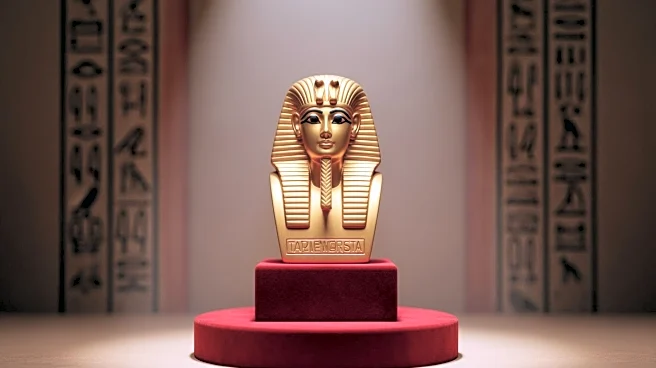What's Happening?
Khaled El-Enany, Egypt's Antiquities Minister, has been elected as the head of UNESCO, becoming the first Arab to hold this position. El-Enany was elected by UNESCO's 58-member Executive Board with 55 votes, surpassing Edouard Firmin Matoko of Congo-Brazzaville.
Despite his election, El-Enany faces criticism regarding his leadership and the direction he may take UNESCO. His previous work includes overseeing restoration projects in Egypt, such as the reopening of the Bent Pyramid of Sneferu.
Why It's Important?
El-Enany's election is a historic moment for UNESCO, marking the first time an Arab has led the organization. This could influence UNESCO's focus on cultural heritage and preservation, particularly in the Middle East and North Africa. However, his leadership may also face scrutiny and challenges, as critics question his ability to navigate the complex political and cultural dynamics within UNESCO. The appointment could impact international cultural policies and collaborations, potentially shifting priorities towards regions with rich historical significance.
What's Next?
As El-Enany assumes his role, he will likely focus on strengthening UNESCO's efforts in cultural preservation and education. His leadership may prompt discussions on how UNESCO can better support countries with significant cultural heritage. Stakeholders within UNESCO and member countries will be watching closely to see how El-Enany addresses existing criticisms and implements his vision for the organization.
Beyond the Headlines
El-Enany's election may spark broader conversations about representation and diversity within international organizations. His leadership could encourage more inclusive approaches to cultural heritage management, fostering greater collaboration among countries with diverse historical backgrounds.
















